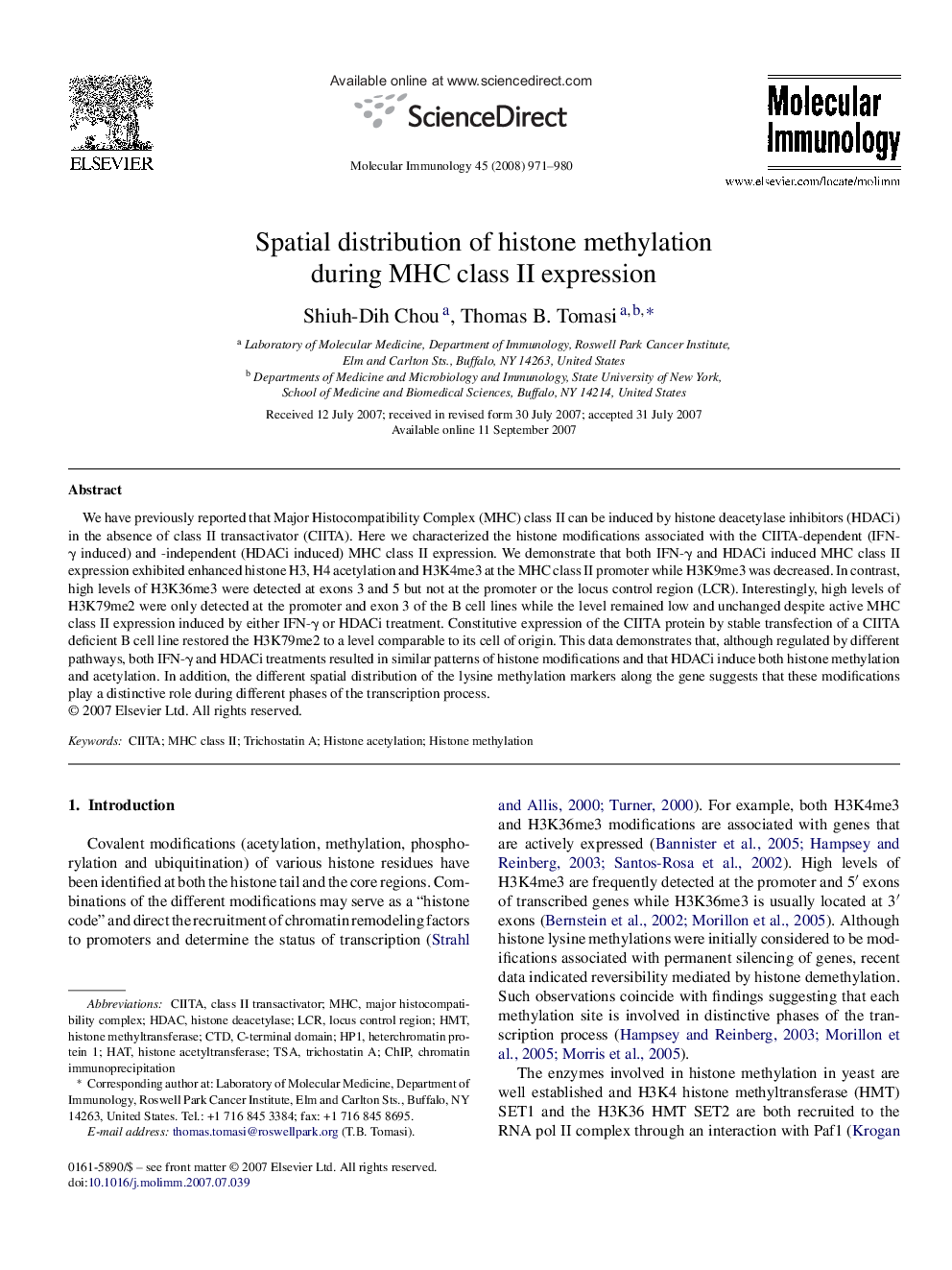| Article ID | Journal | Published Year | Pages | File Type |
|---|---|---|---|---|
| 2832970 | Molecular Immunology | 2008 | 10 Pages |
We have previously reported that Major Histocompatibility Complex (MHC) class II can be induced by histone deacetylase inhibitors (HDACi) in the absence of class II transactivator (CIITA). Here we characterized the histone modifications associated with the CIITA-dependent (IFN-γ induced) and -independent (HDACi induced) MHC class II expression. We demonstrate that both IFN-γ and HDACi induced MHC class II expression exhibited enhanced histone H3, H4 acetylation and H3K4me3 at the MHC class II promoter while H3K9me3 was decreased. In contrast, high levels of H3K36me3 were detected at exons 3 and 5 but not at the promoter or the locus control region (LCR). Interestingly, high levels of H3K79me2 were only detected at the promoter and exon 3 of the B cell lines while the level remained low and unchanged despite active MHC class II expression induced by either IFN-γ or HDACi treatment. Constitutive expression of the CIITA protein by stable transfection of a CIITA deficient B cell line restored the H3K79me2 to a level comparable to its cell of origin. This data demonstrates that, although regulated by different pathways, both IFN-γ and HDACi treatments resulted in similar patterns of histone modifications and that HDACi induce both histone methylation and acetylation. In addition, the different spatial distribution of the lysine methylation markers along the gene suggests that these modifications play a distinctive role during different phases of the transcription process.
